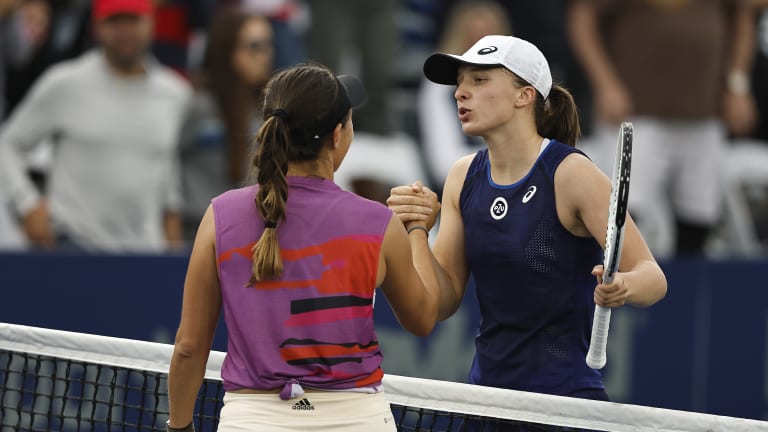San Diego Open
Iga Swiatek now 4-0 against Jessica Pegula in 2022 after San Diego semis win
By Oct 16, 2022San Diego Open
Katie Boulter reaches second career WTA singles final in San Diego, will face Marta Kostyuk
By Mar 03, 2024San Diego Open
Jessica Pegula loses 12 of last 14 games to Marta Kostyuk in San Diego semifinal stunner
By Mar 03, 2024San Diego Open
Jessica Pegula, Emma Navarro advance to San Diego Open semifinals
By Mar 02, 2024San Diego Open
Anna Blinkova, Emma Navarro and Donna Vekic seal quarterfinal berths in San Diego
By Mar 01, 2024San Diego Open
Jessica Pegula knew first match since Aussie Open would feel "weird", rolls in San Diego
By Feb 29, 2024San Diego Open
Donna Vekic, Dayana Yastremska among opening-round winners in San Diego
By Feb 28, 2024San Diego Open
Katie Boulter, Daria Saville among opening-day winners at Cymbiotika San Diego Open
By Feb 27, 2024San Diego Open
A masterful third set sees Iga Swiatek top Donna Vekic for eighth title of 2022
By Oct 17, 2022San Diego Open
A to Z focus: Iga Swiatek all business in San Diego win over Coco Gauff
By Oct 15, 2022Iga Swiatek now 4-0 against Jessica Pegula in 2022 after San Diego semis win
The three-time major winner advanced to her ninth final of the year Saturday by rallying past the American, 4-6, 6-2, 6-2.
Published Oct 16, 2022
Advertising

Swiatek also topped Pegula at the Miami Open, Roland Garros and US Open earlier this season.
© Getty Images